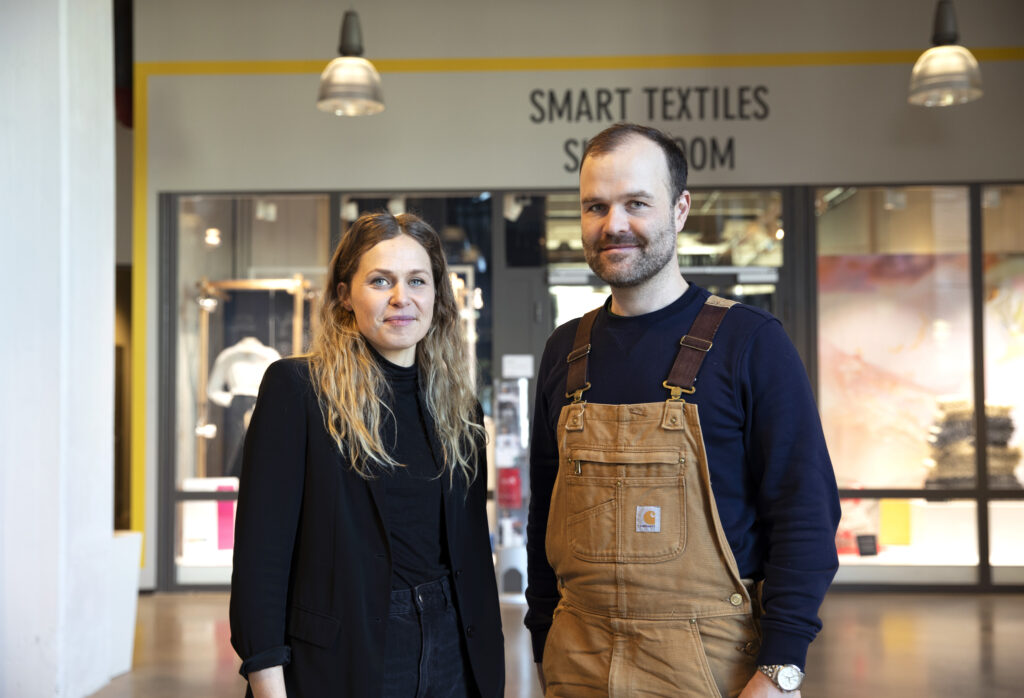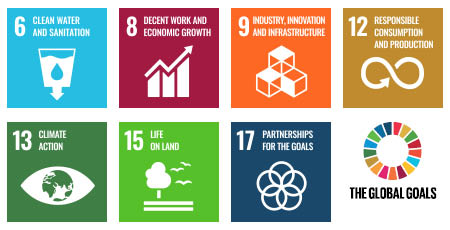Big Do 2021 got kicked off on 9-10 February with Textile & Fashion 2030’s vision workshop, to which visionaries and specialists in textiles and fashion were specially invited. The purpose was to develop a number of challenges based on the global goals that will make the innovations flow for this year’s participants of Big Do – a design hackathon that is intended to accelerate sustainable development in the textile and fashion industry by inspiring results.
Big Do was held for the first time in 2019 and the creator behind the concept is Jonas Larsson, researcher at the Swedish School of Textiles and Knowledge Area Leader for the area Business Models and Consumption in Textile & Fashion 2030. He describes the idea of Big Do as follows, “Big Do is a design hackathon that starts with a challenge based on the global sustainability goals and ends with a ready-made concept linked to textiles and fashion with a story that clearly relates to the sustainability goals and the challenge. The time frame from challenge to presentation of finished results is about 6 months, with an intensive ‘DO’ week in August where participants concretize their ideas in lab and innovation environments.”

Unlike 2019, this year’s Big Do will be held in three places in the world in parallel: Borås, Silicon Valley, and Johannesburg, and the results will be shown at an international digital event that the platform is organizing at the end of October.
Design challenges based on seven priority goals
On 10-11 February, the platform organized a digital vision workshop from Science Park Borås’s innovation environment, the DO-tank Center. The moderator for the day was Maria Lagerman; she runs the company C/O CIRCLES, which works with sustainable business development with a focus on fashion. She describes how the workshop, which had its starting point in defining design challenges grounded in the platform’s seven prioritized sustainability goals, has lain the foundation for the work that will take place within Big Do during the year.
“These have been exciting days in which workshop participants have given incredibly important input based on their knowledge and experience in the textile and fashion industry and based on the work with the global sustainability goals. With the challenges faced globally, it is so important that we look at challenges, conditions, and collaborations with a global perspective, and I really think that the participants have contributed to this over the course of these days,” said Maria Lagerman.
The challenges are designed to take into account all dimensions of circular economies, with a strong focus on restoring ecological systems.
“We have been very careful to ensure that this perspective is included in every challenge to show how the textile industry can help restore the environment and societies,” said Jonas Larsson.

The seven priority goals in Textile & Fashion 2030
Visionaries and specialists contribute different perspectives
In order to include many different perspectives on circular economy in the challenges, a number of well-known people were invited to the workshop, all of whom contributed knowledge in their field: Global Goals – Lotta Almsén, sustainability consultant at Trossa; People and Culture – Annegret Affolderbach, founder of the fashion brand Choolips; Restoration of ecosystems – Holly McQuillan, doctoral student at the Swedish School of Textiles; Feasibility and scalability – Anna Lidström, doctoral student at the Swedish School of Textiles; as well as Susanne Nejderås, platform manager for Textile & Fashion 2030 and operations manager for Smart Textiles.
New approaches and practical applications
Maria Lagerman has worked with sustainability issues for many years and has previously been operations manager for Remake sthlm as well as environmental manager within Stockholm City Mission. She gives her picture of how Big Do can contribute to the work to make the textile and fashion industry more sustainable: “I believe in creating contexts where we work in an interdisciplinary way with challenges and potential solutions. One in which we question current systems, look at the common opportunities globally and locally, and at the same time provide space to in a concrete way explore and test new approaches in the industry to achieve our common goal. I think the Big Do contributes to this.”
Maria Lagerman also explains how the Big Do activity differs to some extent from other things that are done to create change: “That activities take place in many different ways, in different constellations of people and actors and from different angles, I think is very important. What I see as a great opportunity within Big Do is precisely that participants from different parts of the world and the industry are given the opportunity to collaborate and that the shared work both looks at the big issues and concretely provides opportunities to practically test the ideas that are believed to make great difference. The combination enables concrete action and joint engagement to move forward!”
Jonas Larsson emphasizes the importance of this type of activity, which through concrete action shows that it is possible to change here and now: “All of the results from Big Do 2019 are being applied at companies today, which shows that what was done then was quite able to be used. All innovative concepts that are developed in this type of activity in turn inspire others and in that way we create far-reaching effects.”
More information about Big Do 2021
Big Do is aimed at companies and designers all over the world who, based on formulated challenges, have ideas related to textiles and fashion. The challenges for Big Do 2021 will be posted on textileandfashion2030.se in early March, when more information about the application will also be published in the platform’s channels. Follow Textile & Fashion 2030 on LinkedIn or sign up for Textile & Fashion 2030’s newsletter to read more information about applying for Big Do 2021 and other activities within the platform.
Textile & Fashion 2030 on LinkedIn
Textile & Fashion 2030 Newsletter
Register for the International Summit 26 Oct 2021 Big DO Design Hackathon here
Text: Malin Carlsson
Photo: Vasilios Bartziokas





